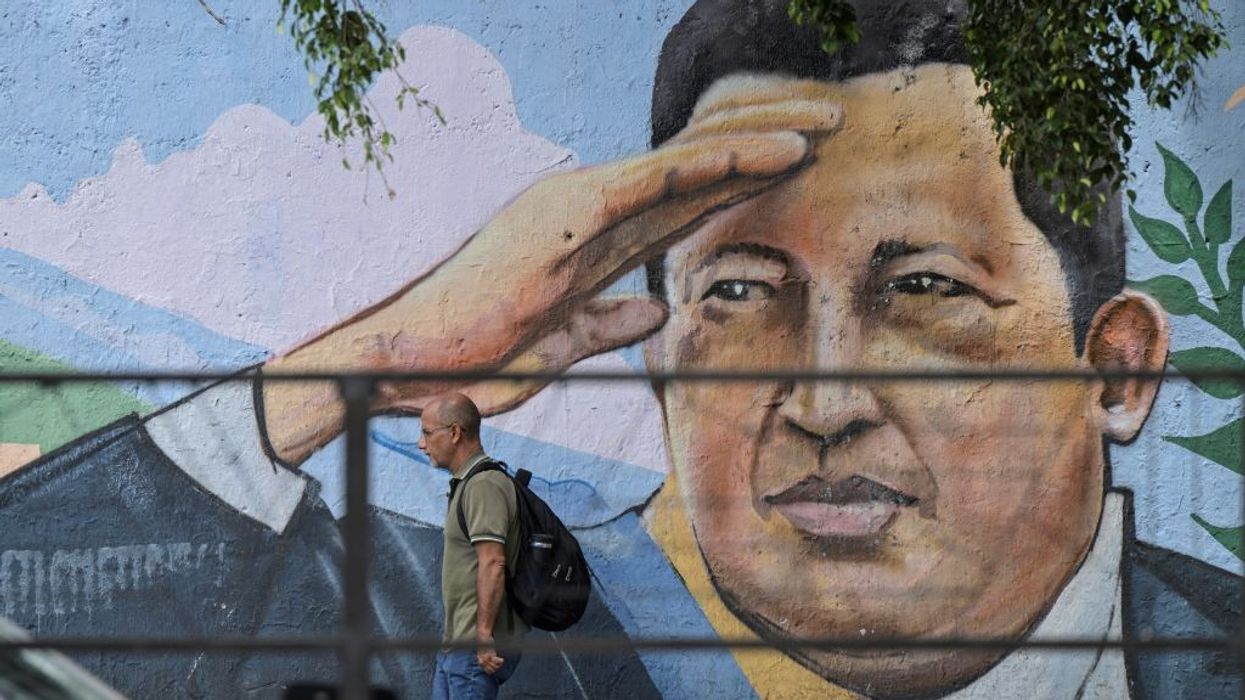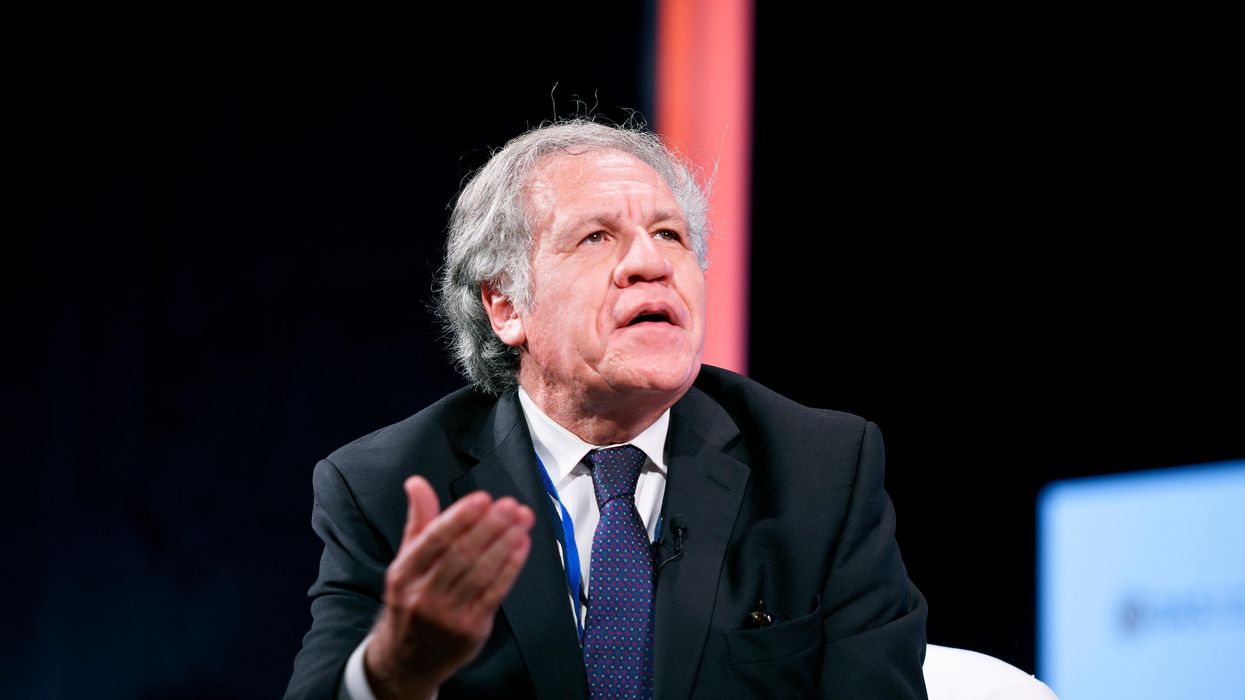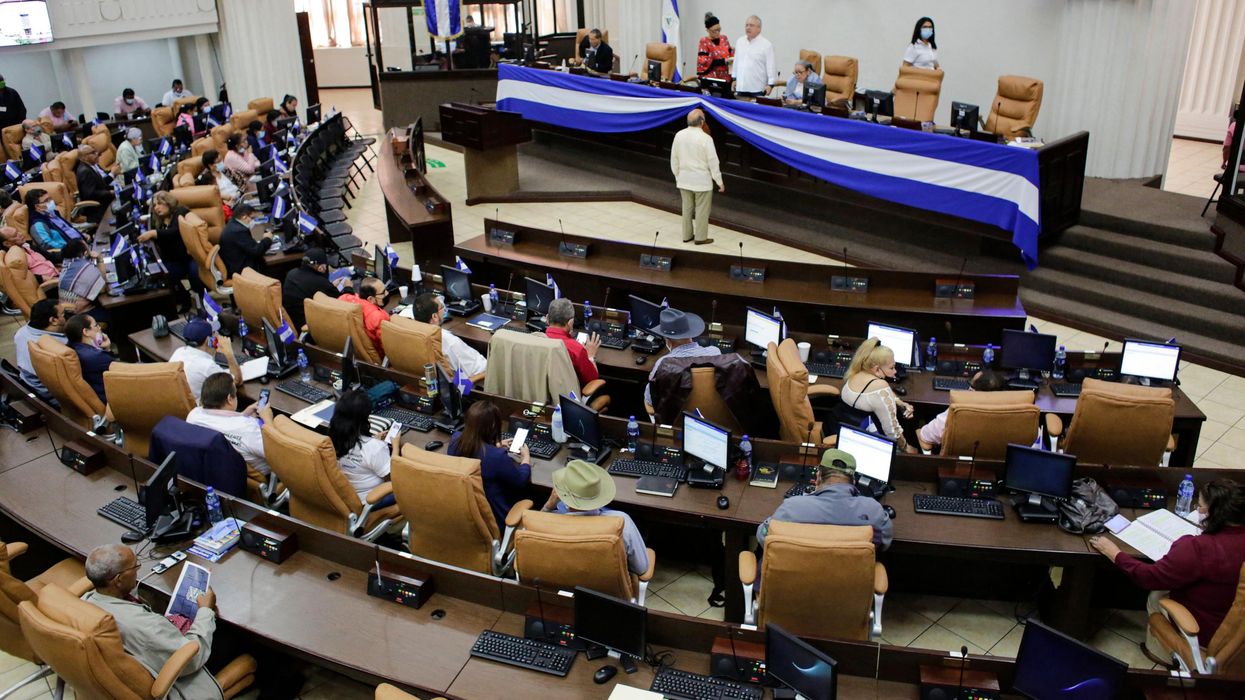On the Need for Transparency in Venezuela
Following a disputed election, the government of President Nicolás Maduro has yet to publicly release the full tally sheets of the results. Meanwhile, U.S. officials are keeping quiet about their links to the opposition.
Since the disputed July 28 presidential election in Venezuela, U.S. officials have been calling for transparency from the Venezuelan government while keeping quiet about their efforts at regime change.
Claiming that Venezuelan President Nicolás Maduro has stolen the election, U.S. officials have been working to bring to power the Venezuelan opposition. With nothing to say about their decadeslong relationship with opposition leader María Corina Machado, who has previously benefited from U.S. funding, U.S. officials have been portraying the opposition as a popular movement that won the election, all without external support or interference.
“The Venezuelan people deserve an election that genuinely reflects their will, free from any manipulation,” Secretary of State Antony Blinken said on the day of the election.
If U.S. officials are serious about wanting to see an election free from any manipulation, then they must be transparent about the U.S. role in the country. While it remains important for the Venezuelan government to release detailed voting results, just as several leftist leaders in Latin America have requested, it also remains critical for the United States to release detailed records about its relationship with the opposition, something it has spent years trying to keep hidden.
U.S. Manipulation
For decades, the United States has been the primary source of manipulation in Venezuela. With the goal of achieving regime change, the United States has been supporting an opposition movement that has been trying to mobilize the Venezuelan people against the Venezuelan government.
During the early 2000s, U.S. officials worked closely with Machado, the current opposition leader, who has long faced allegations of trying to overthrow the Venezuelan government. With funding from the U.S. government and support from U.S. diplomats, she and her organization Súmate led an effort in 2004 to oust then-Venezuelan President Hugo Chávez in a recall referendum. When it failed, Machado repeatedly cast doubt on the results, even though data collected by her organization indicated that Chávez had won, just as election monitors found.
At the time, former President Jimmy Carter charged members of Súmate with deliberately distributing misleading data for the purpose of manipulating the election. “There’s no doubt some of their leaders deliberately distributed this erroneous exit poll data,” Carter said, as reported by The New York Times.
Since then, U.S. leaders have overseen many additional efforts at regime change, targeting both Chávez and Maduro, all of which have failed. In 2019, the Trump administration made one of the most audacious moves, rallying behind opposition leader Juan Guaidó, who led a failed uprising and later fled the country.
At the same time that they are demanding that the Venezuelan government be transparent about the results, [U.S. officials] are keeping quiet about their own efforts to empower the opposition and achieve regime change.
“Our conundrum, which is to keep the opposition united, has proven devilishly difficult,” then-Secretary of State Mike Pompeo lamented, as reported by The Washington Post.
In the July 28 election, the Venezuelan people voted in the context of widespread social and economic collapse, which has been facilitated by the United States. During the Trump administration, U.S. officials imposed severe sanctions on Venezuela, trying to make life so miserable for the Venezuelan people that they would turn against the Venezuelan government.
As former officials in the Trump administration recently acknowledged, they expected their approach to cause the Venezuelan economy to collapse and many people to flee the country. Not only did their actions push Venezuela into the one of worst economic collapses in modern history, but they made life so difficult that more than 7 million Venezuelans fled the country in one of the worst humanitarian crises in the world.
Many Venezuelan migrants have sought entry to the United States, driving the large increase in border crossings, all of which had been anticipated.
The Venezuelan people who have remained in their homeland are still suffering from the effects of U.S. sanctions. Even with the recent election, they have faced few good options, having been forced to deal with a hostile United States.
One of their options has been to support Venezuelan President Nicolás Maduro, the current target of the United States. A vote for Maduro could lead the United States to preserve its sanctions, all but guaranteeing more years of suffering.
Another one of their options has been to side with the U.S.-backed opposition. A vote for the opposition could lead to relief from U.S. sanctions, but it risks bringing to power a right-wing regime that will prioritize U.S. interests and perhaps even transfer the country’s oil wealth to U.S. corporations. Machado, for example, has insisted that she will privatize PDVSA, the state oil company.
Although the Venezuelan government barred Machado from running for office, she remains the main opposition leader, being the driving force behind little-known opposition candidate Edmundo González, who has been serving as her proxy.
U.S. officials have said that public opinion polls display widespread support for González, but critics have questioned their reliability. Analysts at the Center for Economic Policy and Research have reported that support for González has been overestimated, largely due to polling bias.
U.S. Secrecy
Through it all, U.S. officials have been highly secretive about their actions, even while calling for transparency. They have not disclosed which opposition groups they are funding, a longstanding practice.
Neither have they been open about their links to Machado, perhaps due to a critical change in their approach that they began to consider after the 2004 referendum. Once the Venezuelan government began publicizing Machado’s connections to the United States, even charging her and her colleagues with treason, U.S. officials began to consider how they could empower her without appearing as if they were her puppet-master.
During a private meeting on January 10, 2005, then-U.S. Senator Christopher Dodd (D-CT) floated one possibility, advising Machado and her colleagues “to seek international financing from non-U.S. sources” so that the Venezuelan government “cannot credibly label Súmate as a USG-backed organization.”
Machado rejected the advice, however, insisting that Súmate should be able to openly receive funding from the United States, including from the National Endowment for Democracy (NED). “Foreign financing for NGOs is legal, despite the GOV’s contention to the contrary,” she claimed. “Súmate will continue to apply for NED and other grants.”
Initially, the U.S. government supported her approach. In 2005, then-President George W. Bush welcomed Machado to the White House, where he openly supported her. Not long after the meeting, Machado announced that the United States would provide Súmate with additional funding.
Concerned about how the Venezuelan government might respond, U.S. diplomats in Venezuela, who were closely coordinating with Súmate, called for some adjustments. Their main advice was to continue supporting Súmate while making it appear as if there was some distance between Súmate and the United States.
“A continuing, too evident, public identification with the U.S. could now be counterproductive,” the diplomats warned. “At the same time, however, we need to ensure that Súmate has the resources it needs to exploit this new vantage point it enjoys.”
Not only have U.S. officials remained silent about these past moves, but they have been employing many of the same tactics. Taking the approach favored by U.S. diplomats, officials in Washington have been trying to appear distant from the opposition while remaining supportive.
During the most recent election, the Biden administration prepared for multiple scenarios, including ways of supporting the opposition in the case that Maduro was declared the winner. With its public diplomacy, it has framed the vote as a struggle by an admirable and heroic opposition against a corrupt and fraudulent government, just as past administrations have done.
In perhaps its most striking move, Biden administration declared that the opposition won the election, even without having access to the data that administration officials repeatedly said is necessary for confirming the results. After spending days demanding that the Venezuelan government release detailed polling data, the administration went ahead and announced the opposition’s victory anyway.
“Venezuelan opposition and civil society provided decisive evidence showing that Edmundo González received a majority of the votes in this election,” State Department Spokesperson Vedant Patel claimed.
Indeed, U.S. officials are once again throwing their support behind the opposition. At the same time that they are demanding that the Venezuelan government be transparent about the results, they are keeping quiet about their own efforts to empower the opposition and achieve regime change.
Until the United States lifts its sanctions and ends its meddling, the people of Venezuela will never participate in elections that are free from manipulation, just as Secretary of State Antony Blinken insisted they deserve.


